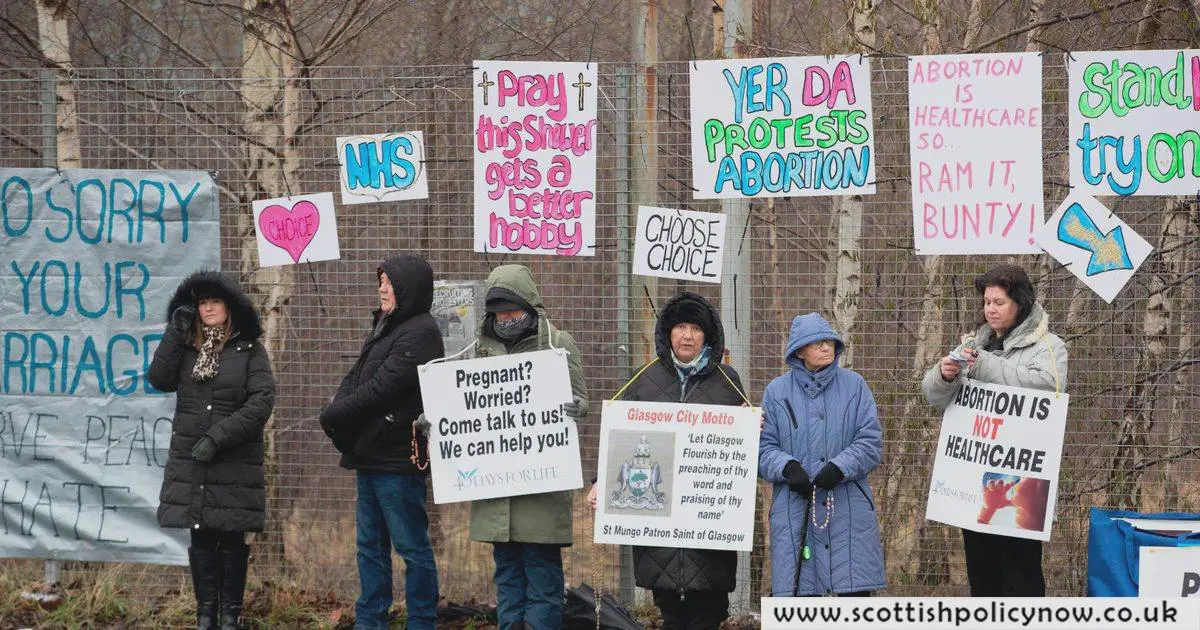A proposed law to ban protests outside abortion clinics in Scotland has been deemed “necessary” to protect women from intimidation, according to a report by a Holyrood committee. The Health, Social Care and Sport Committee unanimously endorsed the Abortion Services (Safe Access Zones) Bill, which was put forward by Scottish Green MSP Gillian Mackay.
In a report published Monday, the committee weighed the conflicting human rights arguments linked to the Bill, ultimately concluding that the measures are “proportionate” to its aim of ensuring safe access to healthcare for women seeking abortion services. Committee MSPs recognized concerns from opponents of the Bill, who argue it infringes on their freedom to express views in public spaces.
The report noted that MSPs questioned the 200-meter buffer zone proposed in the Bill, which is larger than the 150 meters recommended by experts. However, the committee agreed that some exceptions, like the Queen Elizabeth University Hospital in Glasgow, might need a bigger radius due to its complex layout.

During the evidence-gathering process, the committee heard from both sides. Police raised concerns about enforcing the law, especially in cases where people might breach it through silent prayer. Doctors working in abortion clinics stressed that protests could lead to delays or discourage women from accessing treatment altogether, with patients reporting increased anxiety due to protests.
A section of the report highlighted that committee MSPs had differing views on whether silent prayer should be explicitly exempt from the law, as some believe it could lead to “criminalization of private thoughts.” On the other hand, others argued that silent prayer could still be intimidating for those seeking abortion services, leading the committee to recommend further discussion on this at stage two of the legislative process.
Clare Haughey, the committee convener, stated that the committee supports the Bill’s general principles despite some disagreements on certain issues. “We understand there are competing human rights at play, but we believe this Bill strikes an appropriate balance,” she said. Haughey mentioned that the committee held detailed discussions about silent prayer, with some members advocating for its exemption while others argued against it, emphasizing that it can still be intimidating for women seeking abortion services. This aspect will need more consideration as the Bill moves to stage two.
The Bill is set to advance through the Scottish Parliament for a vote at stage one. Gillian Mackay, the MSP behind the Bill, expressed gratitude to the committee for their backing. She noted that the testimonies from patients and staff working in abortion services were “heartbreaking and harrowing,” underlining the need for buffer zones to ensure safety and privacy for those accessing healthcare.
Mackay concluded by saying she hopes all MSPs will approach the Bill with the same positive attitude as the committee, reinforcing that the Bill marks a crucial step toward enhancing reproductive rights in Scotland. The aim is to secure buffer zones that guarantee women can seek medical care without facing harassment or intimidation.







